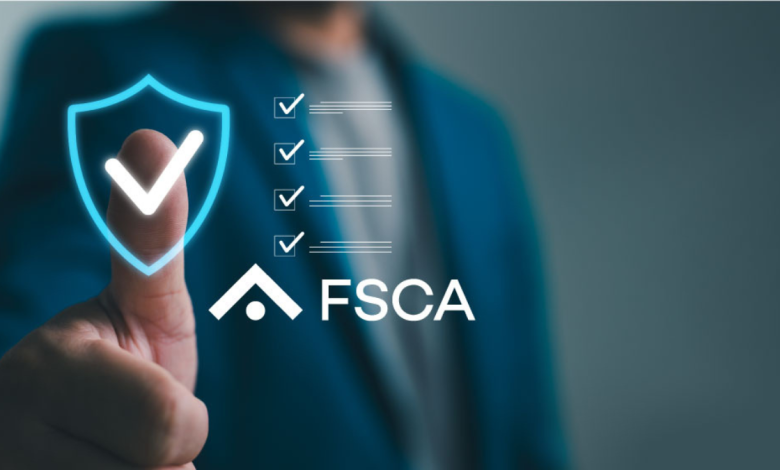The Role of the Financial Sector Conduct Authority (FSCA) in Trading

The Financial Sector Conduct Authority (FSCA) plays a crucial role in South Africa’s financial regulation landscape, especially when it comes to trading. Since its establishment on 1 April 2018, the FSCA has ensured that financial markets operate fairly and transparently, protecting traders and investors alike. Understanding the role of the FSCA in trading helps South African traders make informed decisions and engage confidently with regulated brokers and platforms.
ALSO READ: The Best Trading Apps Available to Gauteng Residents
What Does the FSCA Do in Trading?
The FSCA focuses on market conduct, overseeing how financial service providers treat their clients. This includes supervising FSCA-licensed brokers, trading platforms, asset managers, and financial advisors to ensure they follow FSCA trading regulations. Unlike the Prudential Authority, which looks at the financial health of institutions, the FSCA’s mandate is to safeguard consumers through financial market conduct authority.
South Africa operates under the Twin Peaks regulatory framework, where the FSCA acts as the watchdog for market behaviour and fair treatment, critical for building trust in the financial sector.
Licensing: Trade Only with FSCA-Approved Brokers
One of the FSCA’s most important functions is granting licenses to brokers and trading platforms. This licensing process helps traders avoid scams by confirming that firms comply with South African laws and standards. Before choosing a trading partner, it’s wise to check the FSCA’s public register to ensure they are FSCA-licensed brokers.
Verifying your broker helps you engage only with trustworthy providers, aligning with trading compliance in South Africa requirements and avoiding illegal operators that plague the unregulated space.
Check the register here: FSCA FSP Register.
Protecting Traders through Consumer Awareness
The FSCA protects South African traders by issuing alerts about unlicensed operators and educating the public on the risks of online trading in South Africa. Whether you’re involved in forex, stocks, or cryptocurrencies, being aware of potential pitfalls is essential. The FSCA’s consumer protection initiatives are designed to reduce fraud and promote safe trading practices.
Stay updated with FSCA warnings: FSCA Consumer Alerts.
Maintaining Market Integrity
The FSCA actively monitors markets to detect and prevent unfair trading practices like insider trading and price manipulation. It enforces standards that require firms to treat clients fairly, a cornerstone of financial regulation in South Africa. By upholding these principles, the FSCA helps maintain a level playing field and boosts confidence among traders and investors.
FSCA’s Role in Crypto Regulation
In recent years, the FSCA expanded its oversight to include cryptocurrencies and digital assets. Recognising the growing interest in these new products, the FSCA declared crypto assets as financial products under the Financial Advisory and Intermediary Services (FAIS) Act in 2022. Since mid-2023, crypto service providers must obtain FSCA licenses to operate legally in South Africa.
This regulatory move strengthens FSCA crypto regulation and helps protect consumers in a rapidly evolving market. By March 2024, the FSCA had approved 59 licenses for crypto asset service providers, demonstrating its commitment to bringing clarity and security to this sector.
Learn more about the FSCA’s crypto role: Reuters on FSCA Crypto Licenses.
Why FSCA Regulation Matters for South African Traders
Working with FSCA-licensed brokers and trading platforms guarantees that you operate within South Africa’s legal framework. The FSCA’s enforcement of trading compliance in South Africa helps deter fraud and unethical behaviour. In addition, the authority provides a formal avenue for dispute resolution if you encounter problems with a licensed entity.
The FSCA’s alignment with global best practices makes South Africa’s trading markets more attractive and trustworthy on the international stage, supporting sustainable growth in the financial sector.
FSCA’s Strengthened Enforcement and Capacity
Following South Africa’s greylisting by the Financial Action Task Force (FATF) in 2023, the FSCA increased its budget and staffing to boost enforcement, particularly in high-risk areas like crypto. This shows the FSCA’s proactive approach as the South African trading watchdog and reinforces its ability to oversee complex and evolving markets.
Challenges and the Road Ahead
The fast pace of change in financial products, especially in digital trading, challenges the FSCA to constantly update its frameworks. Cross-border scams remain a concern, and the FSCA works hard to raise public awareness. Despite increased resources, the FSCA continues to face the difficult task of policing an expanding and dynamic sector.
CHECK OUT: Psychological Tricks Successful Traders Use to Stay Focused
Tips for Traders in South Africa
- Always verify your broker on the FSCA’s official register.
- Understand the risks before engaging in any form of trading, including forex and crypto.
- Be cautious of platforms promising guaranteed returns.
- Report suspicious activity to the FSCA immediately.
The role of the Financial Sector Conduct Authority (FSCA) in trading is essential for protecting traders, maintaining market integrity, and fostering confidence in South Africa’s financial markets. By trading with FSCA-licensed brokers and staying informed about FSCA trading regulations, South African traders can safeguard their investments and contribute to a more robust trading environment.
READ MORE: How to Avoid Common Trading Mistakes

